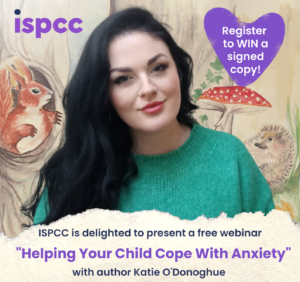
Suicide is a complex and scary topic for parents and caregivers. The way we talk about it needs to avoid further stigma and focus on prevention.
It is important to use safe language that avoids words which may describe suicide in a positive or negative way. Using neutral, factual and respectful words is far less stigmatizing.
Instead of using the phrase ‘committed suicide’ – which implies a choice like committing a sin or crime – it is recommended that we say ‘died by suicide’ as many who have done so feel as if they didn’t have a choice.
Research has shown that the stigma associated with mental health issues is often a barrier to seeking help when it is required.
It is paramount that we normalise talking to our children and teens about their mental health and seeing therapy and counselling as a healthy, natural response rather than a last resort.
- Suicide is the third-leading cause of death for 15 to 24-year-olds, according to the Centres for Disease Control and Prevention (CDC), after accidents and homicide.
- It’s also thought that many more attempts are made for every completed teen suicide.
- Overdose using over the counter, prescription, and non-prescription medicine is also a very common risk for attempting and completing suicide. It’s important to carefully monitor all medicines in your home. Know that teens will “trade” different prescription medicines at school and carry them (or store them) in their locker or backpack.y
- Suicide rates differ between boys and girls. Girls think about and attempt suicide about twice as often as boys and tend to attempt suicide by overdosing on drugs or cutting themselves. However, boys die by suicide about four times as often girls and experts think this is because they tend to use more lethal methods.
Things that increase the risk of suicide among teens include:
- a psychological disorder, especially depression, bipolar disorder, and alcohol and drug use (in fact, about 95% of people who die by suicide have a psychological disorder at the time of death)
- feelings of distress, irritability, or agitation
- feelings of hopelessness and worthlessness that often come with depression
- a previous suicide attempt
- a family history of depression or suicide
- emotional, physical, or sexual abuse
- lack of a support network, poor relationships with parents or peers, and feelings of social isolation
- struggling with their gender identity and/or sexuality in an unsupportive family or community
Suicide among young people often happens after a stressful life event, such as problems at school, a breakup with a boyfriend or girlfriend, the death of a loved one, a divorce, or a major family conflict.
Young people who are thinking about suicide might:
- talk about suicide or death in general
- give hints that they might not be around anymore
- talk about feeling hopeless or feeling guilty
- pull away from friends or family
- write songs, poems, or letters about death, separation, and loss
- start giving away treasured possessions to siblings or friends
- lose the desire to take part in favorite things or activities
- have trouble concentrating or thinking clearly
- have changes in eating or sleeping habits
- engage in risk-taking behaviours (staying out late, going places alone that they usually wouldn’t, drinking, smoking etc.)
- lose interest in school or sports or hobbies/interests they usually enjoy like writing, video games, art etc.
What can you do as a parent or caregiver?
1. Educate yourself
Learn more about what suicide is and what signs to look out for. It is an uncomfortable subject for us as parents and caregivers because it is difficult to think about our young person dying by suicide or that that may be on their mind.
We may have our own personal feelings about suicide as well and that’s okay. Some adults feel that kids who say they are going to hurt or kill themselves are “just doing it for attention.” It’s important to realize that if teens are ignored when seeking attention, it may increase the chance of them harming themselves.
2. Be there for your child
When a young person is having thoughts of suicide or when they have already attempted suicide, the most important think you can do as their parent/caregiver is be able to talk about it openly and non-judgementally with them so they know it is OK to come to you. If they don’t want to speak to you, encourage them to talk to someone else to receive help and support in tackling those thoughts.
You can convey that you are worried about them, that you want to help them, that you love them and want them around. Avoid making them feel guilty, weird, or like a burden.
To help with this, make sure you have someone in your life who you can talk to about your worry – a friend, family member or professional who can be there for you.
3. Take their worries seriously
Express your concern, support, and love. If your teen confides in you, show that you take those concerns seriously. A fight with a friend might not seem like a big deal to you, but for a teen it can feel immense and consuming. Don’t minimize or ignore what your teen is going through, as this can increase their sense of hopelessness.
4. Be vigilant
Keep a close eye on a teen who is depressed and withdrawn. Understanding depression in teens is very important because it can look different from commonly-held beliefs about depression. For example, it may take the form of problems with friends, exam results, sleep, or being cranky and irritable rather than chronic sadness or crying.
5. Don’t compare their life to others
It’s important to keep in mind that someone thinking about suicide or suffering from depression can find it very difficult to think positively about the future. Sometimes they already know they might be ‘in a good situation’ or ‘have it better than others’. But depression and thoughts of suicide have a biological component, so a young person’s brain is struggling to keep the more positive hormones pumping in their brain.
Their inner voice is by now always telling them messages like “you are not good enough, things will not get better”, and they will be finding it very difficult to challenge their thoughts. They will need support and reassurance to do this.
6. Look after your own mental health
It is a big responsibility and challenge to support someone having thoughts of suicide so it is crucial that you seek professional support/guidance and make sure to look after yourself as well.


